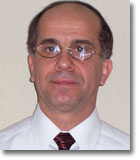Translational Research means different things to researchers in different scientific disciplines. To most it is defined as a “bench-to-bedside approach”, i.e., an approach of using information from advances in basic sciences “bench” to produce new drugs, treatments, and devices that can be clinically or commercially utilized to benefit patients at the “bedside”. In order to help people to better understand this fascinating area, Dr. Hasan Rajab an Associate Professor of Epidemiology & Biostatistics at Alfaisal University, gave a stimulating lecture entitled Translation Research: Why it Matters as part of the Research Colloquium Series on Wednesday 26 May 2010. The lecture was attended by faculty, staff and students.
In his lecture, Dr. Hasan noted that in order to improve health, researchers are “translating scientific discoveries into practical applications. These scientific discoveries begin at “the bench” with basic research, in which scientists study disease at a molecular or cellular level, then progress to the clinical level at the patient’s “bedside.” The time-frame for the pathway from science findings to health benefits is usually long, and generally requires an interactive relationship among different scientific strategies. It is also worth noting that translation flows from the “bench” laboratory to the patient “bedside” as well as in the opposite direction.
Dr. Mohammad Hasan Rajab obtained his PhD in 1987 from Texas A&M University, College Station, Texas, USA in Quantitative Genetics/ Statistics. He joined Alfaisal University in 2009. Prior to his current position he was the Chairman of Biostatistics at Texas A&M University Health Sciences Center/Scott & White Memorial Hospital in the USA. His current research interests are in the area of outcomes and effectiveness research, mind-body interrelationships relaxation techniques and their impact on smoking, anxiety and the use of simulation in health education.














